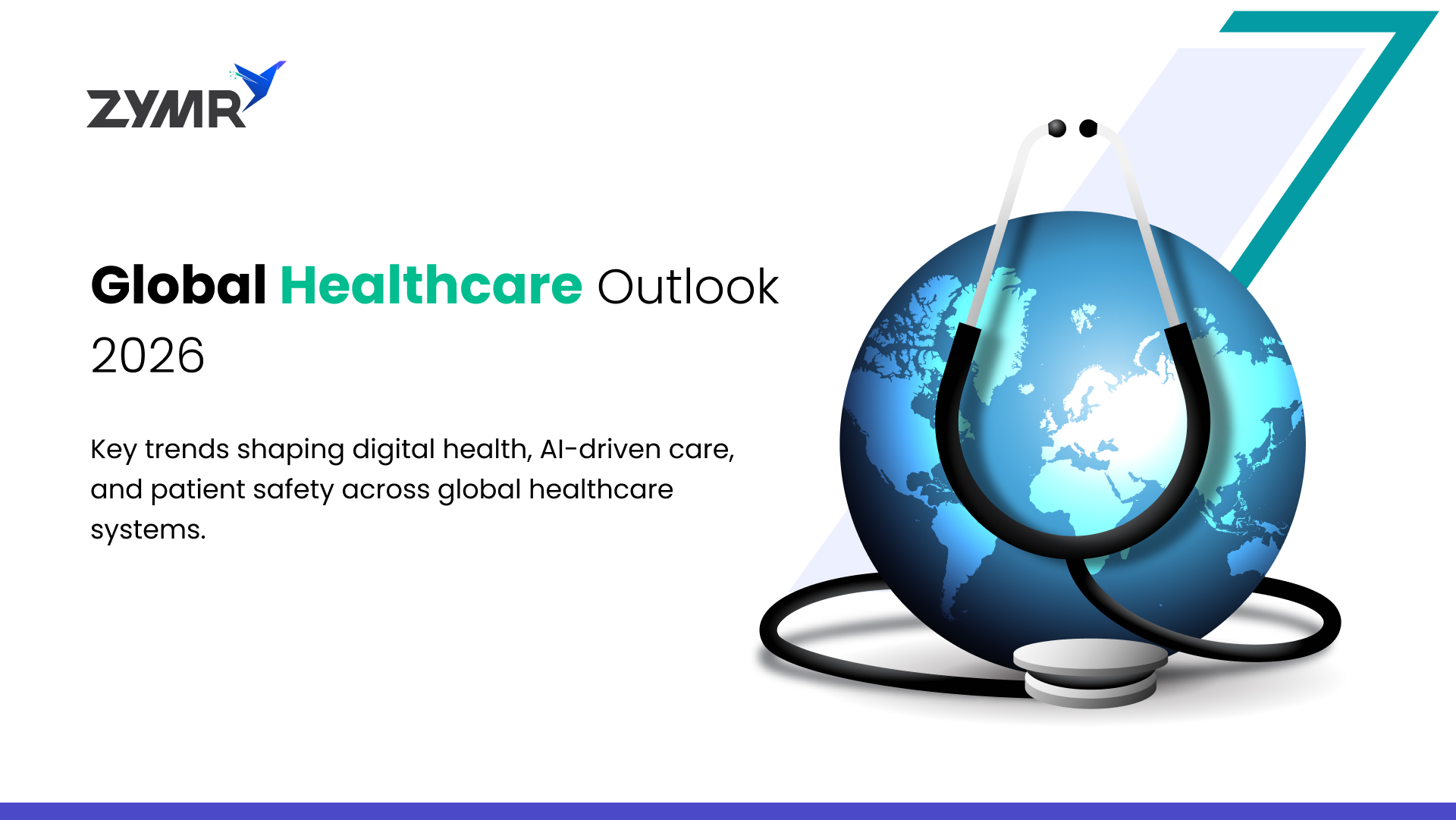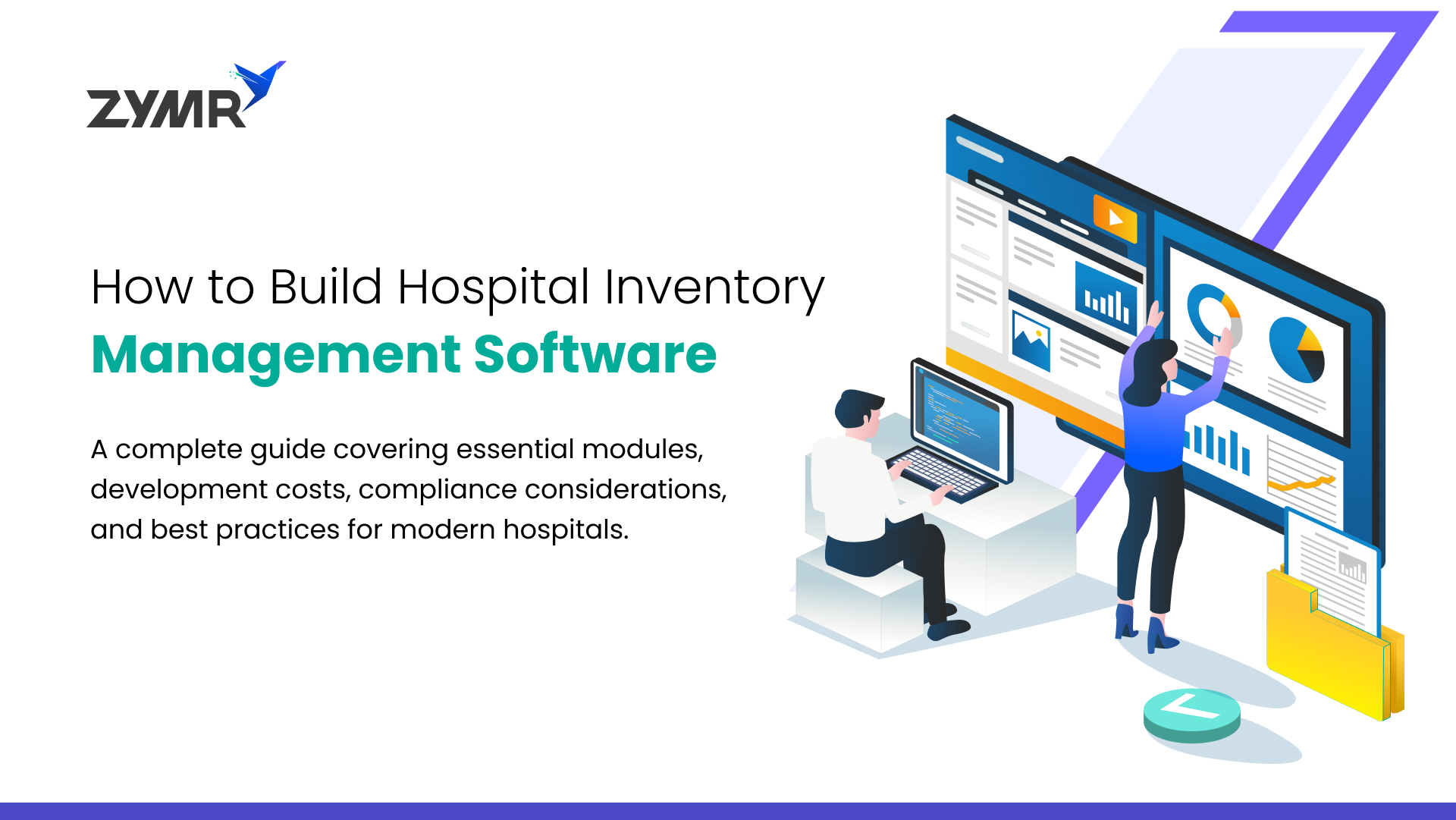The accelerated adoption of AI/ML in healthcare is majorly led by the need for improved access to care. With personalized patient interactions, streamlined administrative processes, and a focus on specialized tasks, AI is helping the healthcare digital ecosystems ensure reliability and efficacy in patient management. As per the numbers by Deloitte, more than US $31 billion has been invested in private equity funding for healthcare AI between 2019 and 2022.
However, where technology and patient care converge, the necessity for robust test automation becomes increasingly evident. Unlike traditional industries, the healthcare sector has been slower to adopt automated testing solutions. So, how come in the era of AI? Can test automation experts strategize to ensure top-quality performance in digital healthcare?
In this blog, we will discuss the challenges that QA automation experts face in healthcare IT services and the strategies that can help work around them. With healthcare AI as the centerpiece, we will try to organize a strategy that is both relevant and effective for modern-day patient care.
Roadblocks to a Strategic Transition
Beyond the visible aspects of patient care, the backbone of efficient healthcare delivery lies in seamless and reliable software, systems, and digital tools. From wearables and instrumentation to telehealth applications and electronic medical record (EMR) systems, these digital solutions form the infrastructure that supports modern healthcare practices. It is, therefore, non-negotiable when it comes to ensuring accurate functioning, efficiently designed interfaces, and seamless integration with legacy healthcare systems. Even with such dire need, there are challenges that test automation teams often struggle to navigate:
- Scalability Issues in System Architecture: The exponential growth in healthcare systems and software poses challenges in maintaining a scalable architecture. Quality assurance leaders grapple with the need to rapidly scale systems while contending with talent shortages, budget constraints, and time limitations.
- Skill Gaps in QA Workforce: The healthcare industry faces a shortage of skilled professionals adept in advanced quality assurance techniques. This skill gap contributes to a reliance on traditional methodologies and manual testing, hindering the adoption of cutting-edge automation practices.
- Resource Constraints and Time Sensitivity: Stringent budget considerations and time constraints amplify the challenges in implementing comprehensive testing strategies. These constraints often force compromises on thorough testing methodologies, impacting the overall quality of healthcare software.
- Regulatory Compliance Complexity: Adhering to strict regulations on protected health information (PHI) introduces additional layers of complexity. Ensuring regulatory compliance throughout the testing process requires sophisticated solutions and adds a technological layer to the testing challenges.
- Inertia in Methodology Evolution: The healthcare sector, grappling with the outlined challenges, has exhibited inertia in transitioning to advanced testing methodologies. Traditional testing practices or in-house solutions persist, impeding the seamless integration of more technologically sophisticated automation practices.
- Cross-Industry Methodology Integration: Adapting test automation methodologies from other industries proves instrumental in expediting the deployment of high-quality healthcare systems. This approach, borrowed from diverse technological landscapes, offers benefits such as expanded testing coverage, streamlined release cycles, resource optimization, and a reduction in software defects.
- Automated Testing as an Efficiency Catalyst: Embracing test automation emerges as a pivotal strategy. Healthcare leaders recognize its potential to free up staff and resources, compress testing timelines, and ultimately reduce the prevalence of software defects in healthcare applications.
- Strategic Transition to Automated Testing: An encouraging 75% of respondents in the Vital Signs survey express their intent to shift towards predominantly automated testing within the next five years. This strategic transition reflects a growing acknowledgment of the efficiency gains and technological advancements offered by automated testing.
- Tailored Technological Solutions: Keysight addresses the unique technological challenges of healthcare by offering an AI-powered suite of software test automation solutions explicitly designed for the intricacies of the healthcare industry.
- Advancing Intelligent Automation: Keysight's commitment extends to supporting healthcare IT professionals in their pursuit of automation excellence. By advancing intelligent test automation solutions, Keysight aims to contribute to the technological evolution of healthcare testing, ensuring the delivery of quality care through sophisticated technological solutions.
Layers of AI Healthcare Testing
Looking closely at the challenges on can figure that AI-based healthcare solutions necessitate the scrutiny and validation of factors like input data, regulation compliance, and integration with legacy systems. As such, any effective test automation strategy to ensure continued reliability and accuracy of AI-based healthcare solutions must pivot around these factors. Here’s how healthcare businesses can strategize test automation for these solutions.
- Semi-Automated Curated Training Data Sets: Analyzing data dependencies statically for both input and intended output is a foundational step in creating effective machine learning models. This process involves annotating data sources and features, providing essential insights for migration and deletion considerations.
- Test Data Sets: The creation of logically constructed test data sets serves as a crucial element in determining the efficacy of trained models. These sets are meticulously designed to encompass all possible combinations and permutations, fostering refinement in the model during iterative training processes.
- System Validation Test Suites: Leveraging algorithms and test data sets, comprehensive system validation test suites are formulated. These suites include diverse test scenarios, ranging from risk profiling to patient demography and therapy predictions, ensuring a robust evaluation of the AI-based healthcare system.
- Reporting Test Findings: Test results are presented in statistical formats, acknowledging the range-based accuracy or confidence scores inherent in machine learning algorithm validation. For each development cycle, testers specify confidence criteria within a defined range.
- Data Curation & Validation: The efficiency of AI-based healthcare systems is intricately tied to the quality of training data. Addressing aspects like bias and variety is crucial, emphasizing the critical role of data training for ensuring accurate inputs.
- Algorithm Testing: At the heart of AI-based healthcare systems, algorithms undergo rigorous testing for model validation, learnability, efficiency, and empathy. This approach ensures the core processes that drive the system are robust and reliable.
- Natural Language Processing, Image Processing, Machine Learning, Deep Learning: Diverse components crucial to healthcare systems, including natural language processing, image processing, machine learning, and deep learning, undergo comprehensive testing to address the specific challenges associated with each.
- Performance and Security Testing: AI-based healthcare systems necessitate extensive performance and security testing, taking into account regulatory compliance and ensuring adherence to industry standards.
- Smart Interaction Testing: Extending testing to devices such as Siri, Alexa, AR/VR, drones, and driverless cars ensures that AI-based healthcare systems seamlessly interact with a variety of smart technologies and platforms.
Conclusion
The undeniable potential of AI in healthcare must be harnessed correctly for efficient performance, accurate results, and secure functionality. Test automation plays a pivotal role in this process, ensuring the reliability and efficacy of AI-based healthcare applications. As we continue to navigate this exciting frontier, the importance of meticulous testing will only grow.
FAQs
>
>
>
>
>
Have a specific concern bothering you?
Try our complimentary 2-week POV engagement
Our Latest Blogs

January 15, 2026
Global Healthcare Outlook 2026: Key Trends in Digital Health, AI, and Patient Safety

January 15, 2026
Top 10 Healthcare IT Services Companies Transforming Healthcare Delivery(2026)

January 15, 2026






.svg)
.svg)
.svg)
.svg)
.svg)
.svg)
